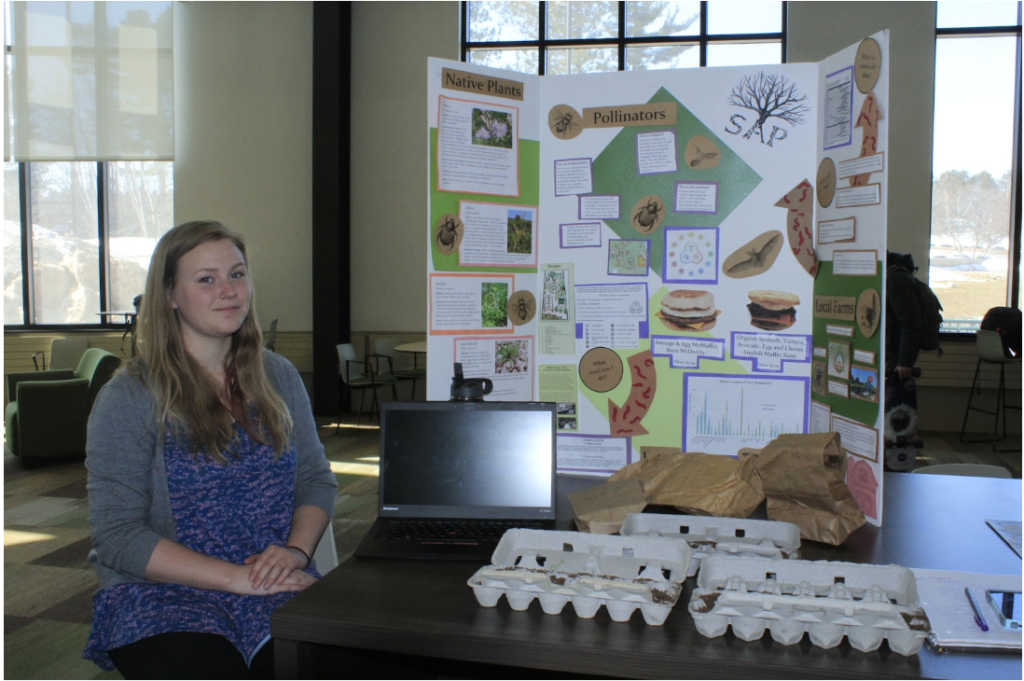NMU’s Sustainable Garden Club is planning their new permaculture site near the Jacobetti Complex, projected to be complete this spring when the ground has thawed enough for planting.
The student run organization, which began just last fall, held an information booth on Tuesday in the first floor lobby of Jamrich Hall to inform students on how they can adopt permaculture principles into their own lives.
Permaculture is the development of agricultural ecosystems which are intended to be sustainable and self sufficient.
“We lost our old permaculture site and this is something we feel can be continued into the newer generations of NMU students and there is definitely interest for it too,” said Courtney Rajt, vice president of the club and junior environmental studies and sustainability major.
The new permaculture site will be next to the Earth, Environmental and Geographical Sciences (EEGS) hoop house and materials available from the house will be used to build the future permaculture site. Other seeds and gardening materials will come from seed swaps and the Marquette Climbers Co-op. Food grown at the new permaculture site will be given to students and volunteers, Rajt added The goal is to encourage students to eat locally and begin gardening, but in the Upper Peninsula this is no easy feat. Due to the climate here, much remediation is needed to make soil suitable for gardening, Rajt said.
Despite a few challenges growing your own food and eating more sustainably and locally is possible even for students, Rajt said.
To get started gardening on your own, Rajt recommends seed starters in something like egg cartons. They are easily available, cheap and make transporting seedlings into an actual garden quite simple. With container gardening and eating organically, it’s easy to live by the permaculture principles of sustainability and self-sufficiency, Rajt said.
“To eat more organically, you can just read the label and know what you’re eating and what you’re putting into your body. Knowing who actually makes the food is a big step too,” Rajt said. “You’ll see something that says it’s organic or natural, but it’s just made by Nestlé or something and it’s not actually organic or natural. That’s called greenwashing. Be aware of that.”






























